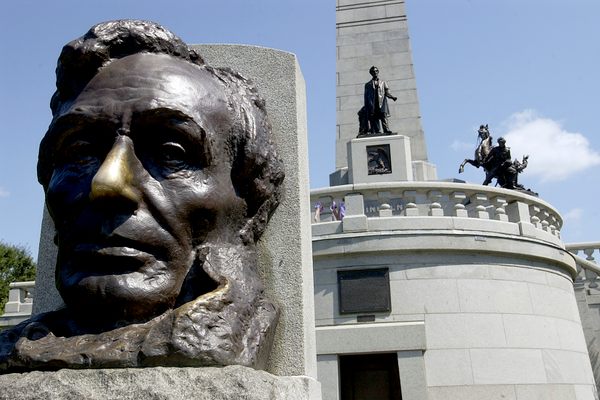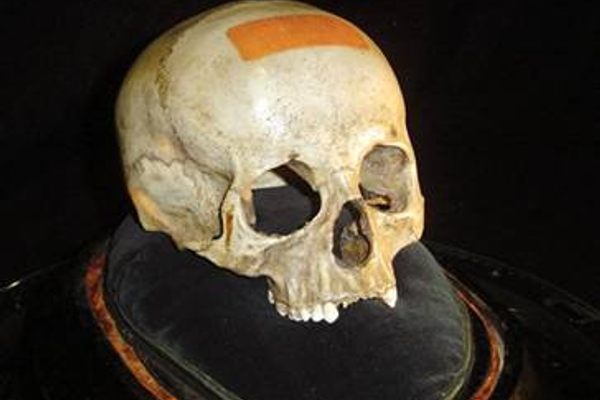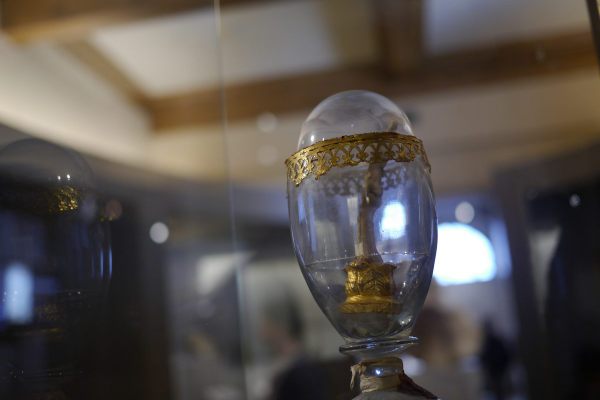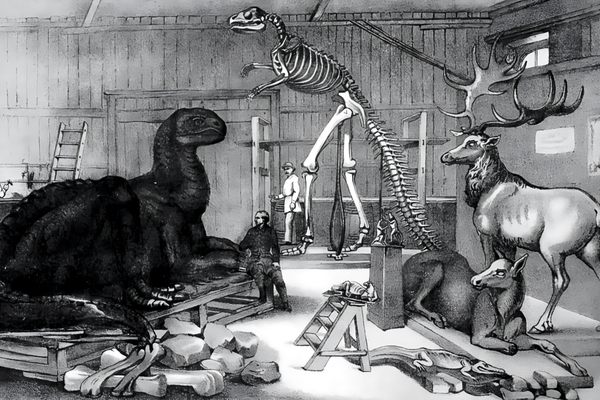100 Wonders: The Middle Finger of Modernity
Once you are dead you have very little say about what happens to you next.
When Lenin died he expected to be buried in a cemetery next to his mother, but mother Russia had other plans. Lenin’s 145-year-old corpse is still on display some 85 years later. According to his embalmers, the corpse is, surprisingly, only improving with age. Lenin with his careful team of biochemists, anatomists, and surgeons represents one of the lucky stiffs. More often than not, someone just comes in the night and grabs your skull.
Last month the skull of Nosferatu director F.W. Murnau went missing near Berlin. Its whereabouts are currently still unknown. Einstein’s brain spent twenty years in a pair of mason jars in a cider box in the basement of a Princeton pathologist. Recently the brain was divvied up and sent to the National Museum of Health and Medicine and the Mütter Museum. Einstein’s eyes are in believed to be in a New York safe deposit box, and were owned by his ophthalmologist until his death in 2009. In a 1994 article Einstein’s eye doctor Henry Abrams said, “Having his eyes means the professor’s life has not ended. A part of him is still with me.“ (The current ownership of Einstein’s eyes is unclear, though presumably they passed to whoever received Abrahams’ estate after his death.)
Napoleon’s penis is in New Jersey, Rasputin’s member is possibly in Russia, Geronimo’s skull is believed to be in the back room of the Yale Skull and Bones Society in Connecticut, Eva Peron’s body took a 20-year posthumous trip around the world, and Lincoln’s coffin has been opened five times and moved 17 times.
The list goes on and on. Mussolini, Beethoven, Mozart, Chaplin, Elvis, Ann Boleyn, Thomas Paine, Oliver Cromwell, even Saint Nick’s bones were stolen by a professional group of relic thieves in 1087. Santa’s bones are said to “weep mana” and Bari, the Italian town that stole the bones, still throws a party to celebrate the bone theft every year.
The more famous you were the more likely it is that some piece of your body will end up stolen, mummified, or in a jar somewhere. So let’s give this rule a name. Let’s call it “The Galileo Principle” in honor of the man and the middle finger that proudly greets visitors to this day.




















Follow us on Twitter to get the latest on the world's hidden wonders.
Like us on Facebook to get the latest on the world's hidden wonders.
Follow us on Twitter Like us on Facebook